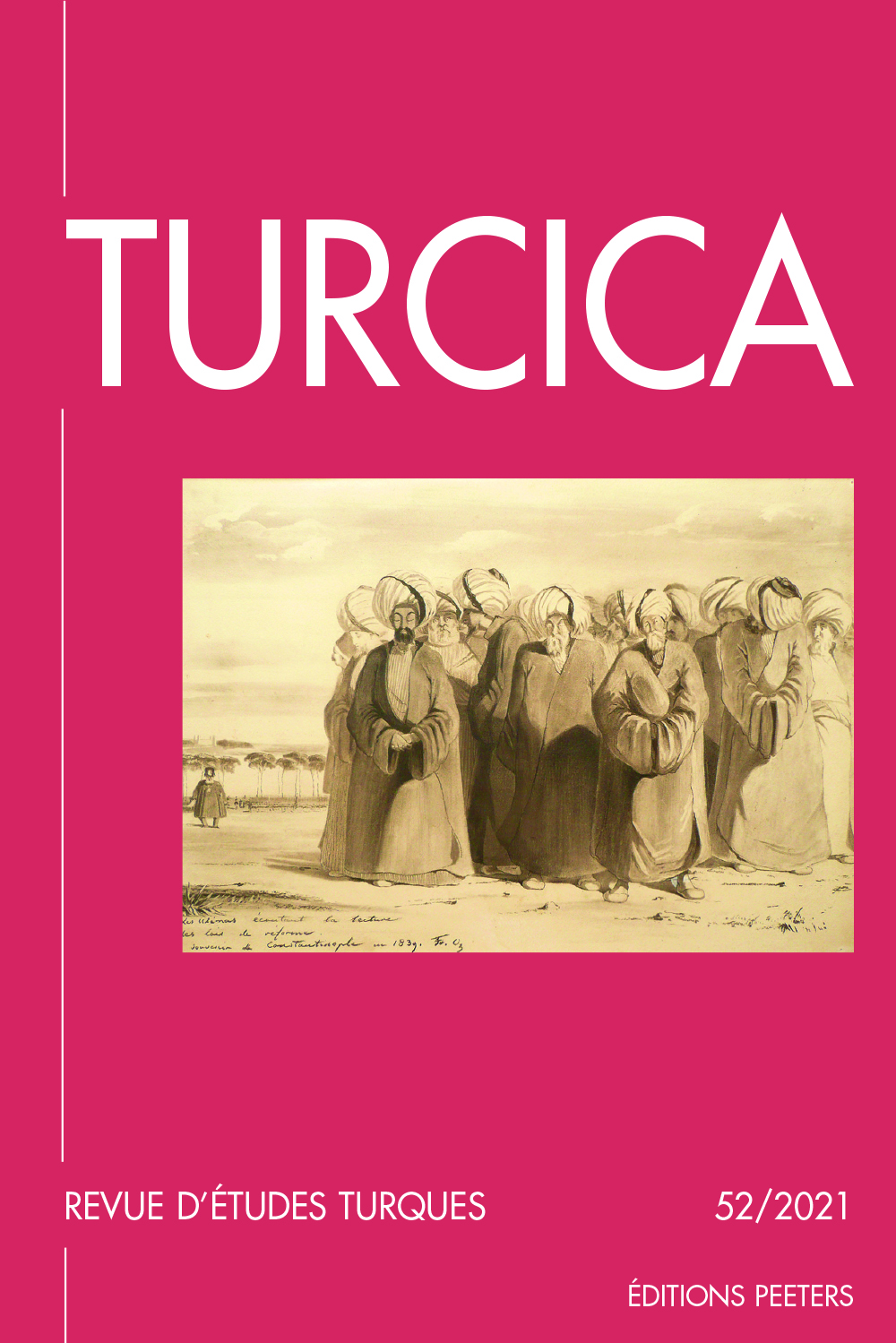 previous article in this issue previous article in this issue | next article in this issue  |

Preview first page |
Document Details : Title: L'archéologie historique de l'Empire ottoman Subtitle: Bilan et perspectives Author(s): YENIŞEHIROĞLU, Filiz Journal: Turcica Volume: 37 Date: 2005 Pages: 246-265 DOI: 10.2143/TURC.37.0.2011706 Abstract : L’archéologie de l’Empire ottoman est un domaine de recherche qui prend chaque jour davantage d’importance dans les pays ayant fait partie de l’Empire ottoman. Il s’agit en effet d’une notion récente, encore inexistante même dans certains pays du Moyen-Orient et des Balkans. Les divers travaux de fouilles entrepris notamment dans les forteresses, certains quartiers des villes, des maisons, des complexes architecturaux, divers types d’édifices ottomans ainsi que des recherches archéologiques sous-marines ont contribué à l’accumulation de données qui offrent des possibilités d’interprétation de l’histoire. Les différentes méthodes de recherche archéologique qui se sont développées ces dernières années, parallèlement au progrès des conceptions pluridisciplinaires dans les sciences humaines et sociales, s’appliquent aisément à la période ottomane. L’archéologie urbaine, l’archéologie rurale, l’archéologie sous-marine, l’archéologie des objets, l’archéologie industrielle et la bioarchéologie sont parmi les différents champs d’études qui animent la recherche et les interprétations dans le contexte de l’histoire de l’Empire ottoman. La classification de l’archéologie de l’Empire ottoman en tant qu’archéologie historique définit en effet une archéologie qui porte sur des périodes relativement plus récentes de l’histoire, notamment des périodes post-médiévales, et qui engendre en conséquence des études faisant usage des concepts en vigueur dans les sciences humaines et sociales postérieurs aux années 1980. The Historical Archaeology of the Ottoman Empire. Evaluation and Prospects. Archaeology of the Ottoman empire is a field the significance of which constantly develops in the countries that were a part of the empire in the past. It is in fact a new concept which is not always well assimilated in the Near East and the Balkans. The excavations realized in the fortresses, in the certain quarters of cities, houses, architectural complexes, different types of Ottoman buildings and researches in underwater archaeology contribute to the data which may offer new possibilites of interpretation of the Ottoman history. Different kinds and methods of research in archaeology which were developed in the recent years parallel with the new conceptions in the disciplines of humanities and social sciences can be easily applied to the research of Ottoman period. Urban archaeology, rural archaeology, underwater archaeology, archaeology of the material culture, industrial archaeology and bio-archaeology are among the different fields of study which offer progress in the research and interpretation in the context of Ottoman empire. The archaeology of the Ottoman empire can be classified as historical archaeology which is in fact engaged in the more recent periods of history notably in the post medieval periods and that consequently can make use of concepts of the humanities and social sciences of the 80’s. |
 |


